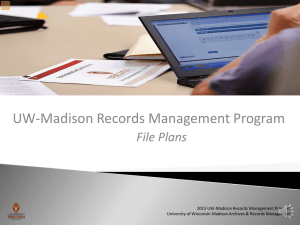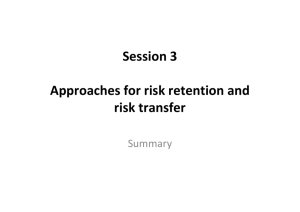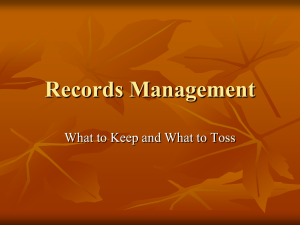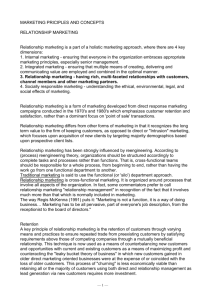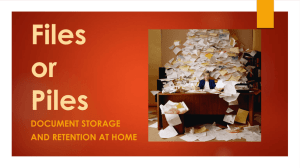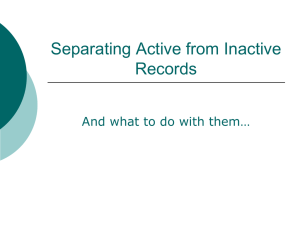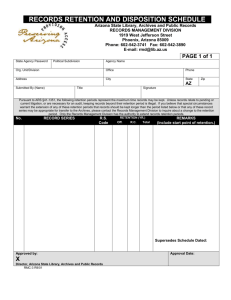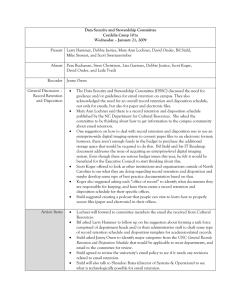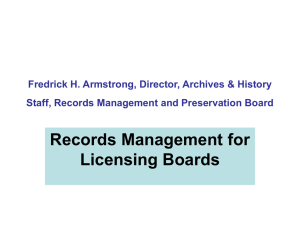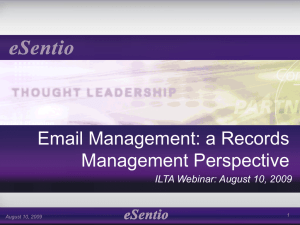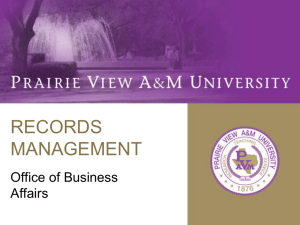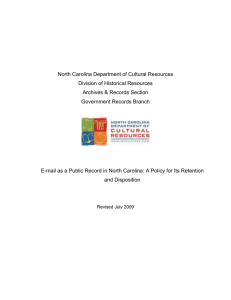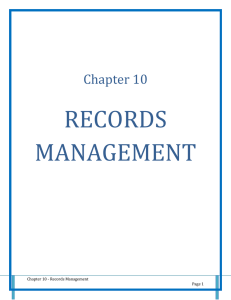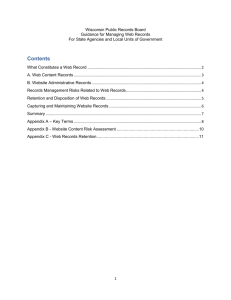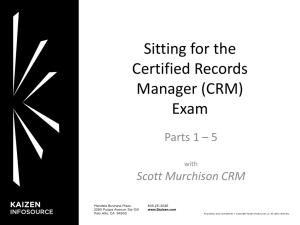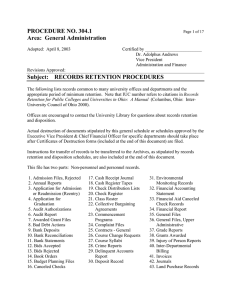Records Management for Education
advertisement
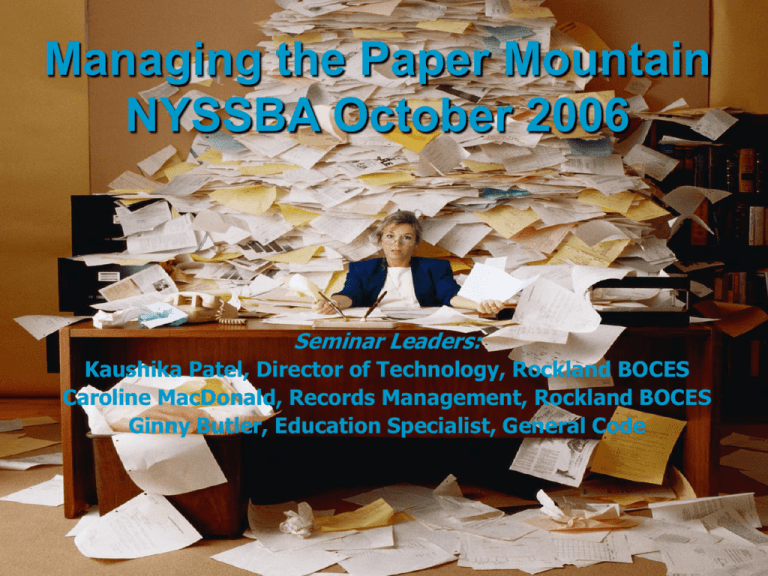
Managing the Paper Mountain NYSSBA October 2006 Seminar Leaders: Kaushika Patel, Director of Technology, Rockland BOCES Caroline MacDonald, Records Management, Rockland BOCES Ginny Butler, Education Specialist, General Code Agenda Introductions Guidelines for Effective Records Management Questions and Answers Records “Any book, paper, map, photograph, or other information-recording device, regardless of physical form or characteristic, that is made, produced, executed, or received by any local government or officer thereof pursuant to law or in connection with the transaction of public business. Record as used herein shall not be deemed to include library materials, extra copies of documents created only for convenience of reference, and stocks of publications.” (Arts and Cultural Affairs Law, § 57.17, Subdivision 4) Records Come in Different Forms Paper Microfilm/Microfiche Electronic Documents E-Mail Web Pages Examples of Records in Education Student Files Attendance Records Student Medical Records Report Cards IEP’s Policies and Procedures Purchase Orders Official E-Mail Environmental and Safety Assessments Grant Proposals Personnel Files School Board Minutes Budgets Student Portfolios Evacuation Plan Classes of Records Vital Important Essential to Irreplaceable continued operation Important to Replaceable continued operation (sometimes at considerable expense) Useful Loss would temporarily inconvenience organization Nonessential No real value Replaceable Ought to be destroyed The Lifecycle Concept Active Records Inactive Records Archival Records Records Lifecycle Active Current Frequently accessed Inactive Older; must be retained Rarely accessed Archival Of important historical significance Occasionally accessed, usually for research Record Series “A group of related records (such as minutes of a board, payrolls, and purchase orders) that are normally used and filed as a unit and that normally have the same retention requirements.” (NY SARA Glossary of Terms) Records Retention and Disposition Schedule “A list or other instrument describing records and their retention periods which is issued by the commissioner of education.” (Arts and Cultural Affairs Law, § 57.17, Subdivision 6) http://www.archives.nysed.gov/a/nysaservices/ns_mgr_pub_ed1.shtml Records Management Program A records management program includes, but is not limited to: the legal disposition of obsolete records the identification and administration of and access to records of enduring value filing and indexing systems the use of computer or other technology information the storage and management of inactive records no longer needed for the conduct of day-to-day business in the office the microfilming of records the oversight of the creation and use of forms, correspondence and other records and the provision for protecting vital records (8 NYCRR, §185.1(b)) Records Management Provides control over records from creation to destruction Ensures that records are retained and usable through their mandatory retention periods. Ensures that records are destroyed at the end of their retention periods. Who Is Responsible for Records Management? The Records Management Officer EVERYONE Business Records Storage Space Accessibility Sharing of Information Demands for Instant Information Legal FERPA HIPAA IDEA NCLB FOIL Major Components of a Records Management System Records Plan Training Responsibility Records Determine which things are “records” Group by Records Series A Plan Filing Structure Naming and Indexing Access Security Retention and Disposition Best Practices Create and save ONLY records you need Retain necessary records; dispose of obsolete records Store records safely and securely Be able to retrieve records quickly and easily Keep the process for sharing information simple Have documented procedures and good training for everyone Use technology appropriately Have a Disaster Recovery Plan – and USE it Total Record Solutions Paper Film Electronic Records How Can BOCES Records Management Help? Needs Assessment Planning In-service Training Electronic System Implementation Ongoing management assistance QUESTIONS AND ANSWERS Thank you Kaushika Patel (845) 627-4735 Ginny Butler (800) 836-8834 Caroline MacDonald (845) 627-4854
